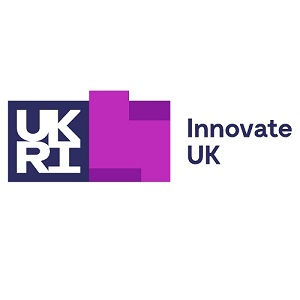Industrial Biotechnology for Improving Production of Higher Value Chemicals

BBSRC invite applications to a funding call in Industrial Biotechnology for Improving Production of Higher Value Chemical. There is up to £2M available for grants to support short collaborative projects of between 12 to 24 months with a value up to £250K.
Call status: Open for applications
Call Closes: 16 January 2020, 16:00 BST
Summary
BBSRC invite applications to a funding call in Industrial Biotechnology for Improving Production of Higher Value Chemical. There is up to £2M available for grants to support short collaborative projects of between 12 to 24 months with a value up to £250K.
The call will support research translation to address challenges in applying bioprocesses for improving the production of higher value chemicals and aims to accelerate the de-risking of IB processes and help bridge the gap to larger-scale projects and further public or private investment.
Multidisciplinary and collaborative projects will enable the translation of research into industrial processes, supporting the development of post-proof of concept research progressing it towards technology readiness levels (TRLs) 3, 4 and 5. Collaborations with industry will be compulsory to help direct research toward industrially relevant challenges and support the translation of bioprocesses into an industrial environment.
Background
The UK Chemicals industry generates £9bn gross value added (GVA) per year, employs 105,000 people, and is one of the highest energy intensive industrial sectors. There is a strong industry driver to reduce carbon emissions, and consumer demand for more sustainable products, which move away from using fossil-based carbon to manufacture chemicals. These increased drivers for sustainability mean that the industry is open to innovation that will lead to more sustainable manufacturing practices.
Modern bioscience technologies and multidisciplinary approaches have the potential to enable the industry to address this challenge, through the production of chemicals via bioprocesses, and the manufacturing of bio-based chemicals from non-fossil fuel-based feedstocks. This approach can reduce emissions and address sustainability issues by reducing demands on fossil fuels, lowering the energy costs of traditional chemical process, and permitting the development of novel materials with improved properties.
UK Government strategies also support these changes, for example through the UK Clean Growth Strategy which highlights the impact of the chemicals industry and includes priorities for low carbon innovation, clean energy innovation, energy efficiency, carbon capture usage and storage and zero waste by 2050. The UK Bioeconomy Strategy, which recognises the potential of bioscience and has the vision that in 2030 the UK is a global leader in developing, manufacturing, using and exporting bio-based solutions. In addition, the Chemistry Council’s strategy states that biotechnology has an increasing role to play in the chemicals industry delivering advanced materials and molecules, creating a pipeline of green supply chains including waste to feedstocks and supporting clean growth by rebuilding cost competitive and carbon efficient supply chains.
Industry is open to innovation that will lead to more sustainable manufacturing practices. However, currently the economic case for the application of many of these innovations only works for higher value chemicals vs commodity chemicals produced in bulk with lower market values. The value of products need to compensate for the investment required to apply new technologies and infrastructure, such that chemicals produced in this way can compete with those manufactured traditionally.
The projects funded through this call will accelerate the de-risking of IB processes and help bridge the gap to larger-scale projects and further public or private investment.
Scope
BBSRC consulted with industry and the academic community to better understand BBSRC’s role in enabling bioscience to support the desired innovation, building on investments in this area to date. The consultation led to a report which provides an overview of the current drivers within the sector. The report outlines the research challenges that need to be addressed in applying bioprocessing to improve the production of higher value chemicals (see pages 14 – 16). The consultation also highlighted the support required to address these research challenges and this call aims to address some of those gaps.
For more information and details on how to apply, please click here.

























